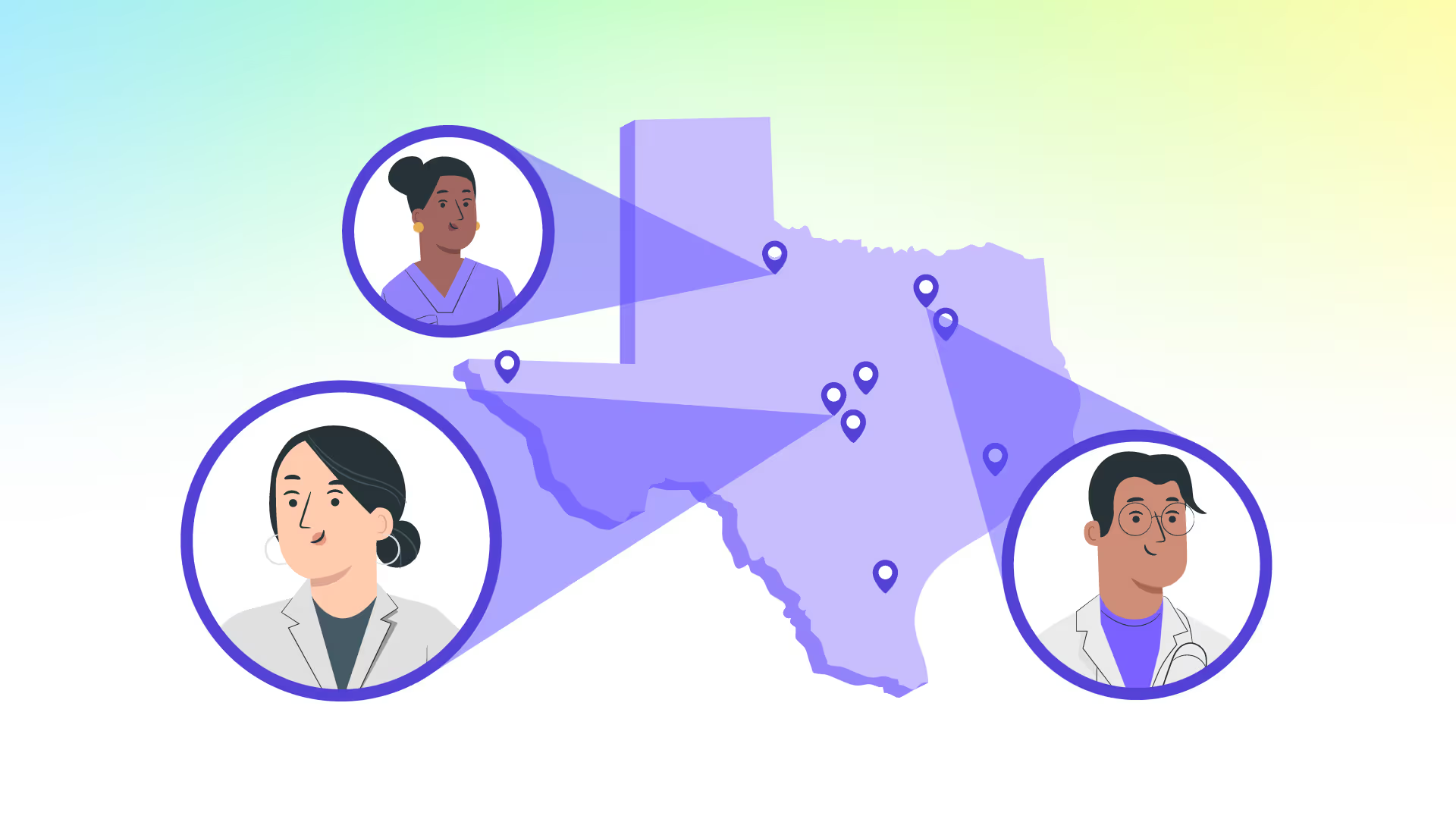TL;DR: Key Takeaways About NP Preceptor Costs
- Costs vary significantly based on multiple factors: Rotation prices depend on your specialty, location, clinical hours required, and timeline. Specialized rotations in fields like psychiatric-mental health or acute care typically cost more than primary care due to high demand and limited preceptor availability.
- Flexible payment options make preceptorships manageable: Most services offer payment plans with an initial deposit and remaining installments, with some like NPHub providing 12-month payment plans to spread costs across an entire year, making it easier to budget for multiple clinical rotations.
- The cost of NOT finding a preceptor is often higher: Sitting out a semester means additional tuition, extended student loans, and lost income potential. Every month you delay graduation is another month earning an RN salary instead of an NP salary, plus the career momentum you lose while peers move ahead.
- Quality matters more than convenience: Not all paid preceptorship services are equal. Look for rigorous vetting standards, guaranteed placement, transparent pricing with no unexpected fees, dedicated support that handles all signed preceptor paperwork, and personalized matching that considers your rotation specialty and professional goals.
- Time is your most valuable resource: While free preceptors exist, they're increasingly hard to find. Many NP students spend weeks or months searching while juggling full-time work and coursework, only to eventually turn to paid options anyway—losing valuable time they could have spent on their clinical education and preparing for their future as nurse practitioners.
How many emails have you sent this week? How many clinics have you called? How many times have you refreshed your inbox, hoping for a response—only to face another rejection?
If you're a nurse practitioner student searching for clinical preceptors, you already know the struggle is real. Between working full-time as an RN, keeping up with your coursework, and managing your everyday life, the last thing you need is the added stress of securing clinical rotations on your own. Yet here you are.
As NP programs continue to grow and most schools provide little to no support in finding clinical placements, more nurse practitioner students are turning to paid preceptorship services just to graduate on time. It's not the path anyone imagined when they enrolled, but it's become a necessary reality for thousands of future nurse practitioners across the country.
The question isn't really whether you should consider paying for a preceptor. For many NP students, it's about understanding what you're paying for, why rotation prices vary based on different factors, and how to make the smartest investment in your clinical experience without falling victim to hidden or surprise fees.
Whether you're just starting your search or you've been at it for weeks with no luck, this guide will help you make an informed decision about your clinical placements. Because at the end of the day, this isn't just about finding any preceptor, it's about securing quality clinical training that prepares you to provide excellent patient care as a confident, capable nurse practitioner.
Feeling overwhelmed by the endless search and approaching deadlines? You don't have to do this alone. Create a free NPHub account and connect with our network of over 2,000 vetted preceptors who are ready to guide you through your clinical rotations. We handle all the paperwork, provide dedicated support from start to finish, and help you stay on track to graduate on time—so you can focus on what really matters: your education.
The Real Cost of NP Preceptors: What to Expect
Let's address the question you came here for: what should you actually expect to pay for an NP preceptor?
The honest answer? It depends. Rotation prices vary based on several factors, and understanding these upfront helps you budget accurately and avoid surprise fees. While costs differ significantly across specialties and locations, knowing what drives pricing gives you realistic expectations for your clinical placements.
What Influences Your Clinical Rotation Costs?
Specialty demand and availability
Primary care rotations typically fall on the lower end of the pricing spectrum due to wider preceptor availability. Specialized rotations such as psychiatric-mental health, acute care, women's health, or pediatrics command higher prices because of high demand and limited availability. Specialized preceptors are harder to find, and their expertise in certain specialties requires premium compensation.
Geographic location
Urban areas with multiple healthcare systems may offer more preceptor options but also face higher demand from competing NP students. Rural locations might have fewer choices, affecting pricing either way. Some regions simply have more competitive markets for clinical placements, which directly impacts what you'll pay.
Clinical hours required
Most schools require 40-180 clinical hours per semester, depending on your rotation specialty. More hours needed means higher total costs. Remember, you'll complete multiple clinical rotations, typically four or more, so these expenses accumulate across your entire NP program.
Timeline and urgency
Need to start in six weeks or less? Services often charge higher fees to facilitate urgent rotation requests. Planning ahead and starting your search early in the semester can help you avoid premium rates for last-minute placements.
Why Preceptors Charge for Their Time
Experienced clinical preceptors aren't just sharing knowledge, they're making real sacrifices to mentor NP students:
- Reduced productivity: Seeing fewer patients means lower income, especially for those in private practice.
- Administrative expenses: Reviewing documentation, completing evaluations, coordinating with your school.
- Liability and responsibility: Supervising your patient care decisions and ensuring quality clinical experience.
- Time investment: Regular meetings, answering questions, providing meaningful mentorship.
When you compensate preceptors for their expertise, you're investing in quality mentorship from highly skilled professionals who guide you in developing the clinical judgment needed as a future nurse practitioner. This isn't about taking shortcuts; it's about securing reliable clinical training in a system where most schools provide minimal support to help students find their own preceptors.
Payment Options: How NP Students Actually Pay for Preceptors
One of the biggest concerns NP students have about paying for preceptors isn't just the cost—it's figuring out how to manage that cost while juggling tuition, living expenses, and existing financial commitments. The good news? Most services understand this reality and offer flexible payment options to make clinical placements more manageable.
Common Payment Structures
Pay in full: Some services offer a discount if you pay the entire rotation cost upfront. While this saves money in the long run, it requires having the full amount available before your rotation starts, which isn't realistic for many nurse practitioner students balancing multiple financial obligations.
Payment plans with installments: The most common approach involves an initial deposit to secure your preceptor placement, followed by remaining installments spread across your rotation. This structure allows you to break the total balance into smaller, more manageable chunks.
Extended payment plans: Services like NPHub offer a 12-month payment plan that spreads costs across an entire year, making it easier to budget for multiple clinical rotations without overwhelming your finances in a single semester. This option gives you breathing room to manage expenses while staying on track with your program requirements.
Smart Budgeting Tips
- Plan for all your rotations: Calculate your total clinical rotation costs for your entire program, not just your next placement.
- Factor in timing: Know when deposits are due and when auto-charged payments will hit your account.
- Review the payment schedule carefully: Understand exactly when each installment is due to avoid surprise fees.
- Ask about payment options upfront: Don't hesitate to inquire about payment plans before committing to a service.
Financial stress shouldn't stand between you and graduating on time. Create a free NPHub account to explore flexible payment options, including our 12-month payment plan that makes securing quality preceptors manageable, without the financial burden of paying everything upfront.
The True Cost of NOT Finding a Preceptor
Before you hesitate at the cost of a paid preceptorship, consider what it costs to not secure a preceptor on time.
The Reality of Delayed Graduation
Sitting out a semester isn't just an inconvenience; it's expensive. You'll face additional tuition fees if you need to maintain enrollment, extended student loan interest, and potentially lose financial aid. But the financial impact goes deeper than what shows up on your school bill.
Lost income potential is the hidden cost most NP students don't calculate until it's too late. Every month you delay graduation is another month of earning an RN salary instead of an NP salary. Sitting out an entire semester or worse, a whole year, while searching for clinical placements adds up to thousands in lost earning potential.
Then there's your career momentum. Job opportunities don't wait. Your peers are graduating, passing boards, and landing positions while you're stuck refreshing your inbox hoping for a preceptor response.
Free vs. Paid Preceptorships: The Honest Truth
Yes, "free" preceptors exist, but they're increasingly hard to find in high-demand markets. Many NP students spend weeks or months on outreach while juggling full-time work and coursework, only to eventually turn to paid options anyway after exhausting unpaid possibilities.
What paid preceptorship actually offers:
- Guaranteed placement instead of uncertain searching and constant rejection
- Signed preceptor paperwork handled for you—no chasing down documents
- Dedicated support from rotation request through completion
- Vetted clinical preceptors who take an active role in your education
- VIP matching specialists available for urgent needs
The question isn't whether you can find a free preceptor—it's whether you can afford the time, stress, and risk of delaying your graduation while trying.
The reality is that time is your most valuable asset right now. Between work, school, and life, every week spent searching is a week you're not spending on what matters—your clinical education and preparing for your future career. That's why thousands of nurse practitioner students have turned to NPHub for guaranteed placement with vetted preceptors. Start with a free account and see how having dedicated support and handled paperwork can keep you on track to graduate on time, without the endless stress of searching alone.
What You Get for Your Money: Choosing Quality Over Convenience
Not all paid preceptorships are created equal. When you're investing in your clinical education, understanding what separates a quality service from a basic placement can make all the difference in your experience and outcomes.
Quality Indicators to Look For
- Rigorous vetting standards: Ask how preceptors are screened before joining the network. Quality services verify credentials, assess teaching ability, and ensure preceptors genuinely want to guide students—not just collect a fee.
- True dedicated support: "Support" can mean a lot of things. Does the service handle all signed preceptor paperwork and university requirements? Or are you on your own once the match is made?
- Transparent pricing and guarantees: Reputable services provide clear upfront prices with no surprise fees. Look for guaranteed placement commitments—not just "we'll try to find you someone."
- Personalized matching: Are you matched with the first available preceptor, or does the service consider your rotation specialty needs and professional interests? Quality matching means better clinical experience and more meaningful patient care exposure.
The real value isn't just in securing a placement, it's in knowing you have a team that invests extra effort into your success. While you could spend months searching on your own, dealing with rejections and chasing paperwork, services like NPHub simplify the entire process so you can focus on your clinical education instead of logistics.
The investment makes sense when you compare it to the alternative: lost time, delayed graduation, and the stress of navigating a broken system alone. Quality preceptorship services don't just find you a clinical site, they ensure you gain experience with preceptors who are compensated fairly and genuinely committed to mentoring the next generation of nurse practitioners.
Ready to experience the difference? Join thousands of NP students who've secured their clinical placements through NPHub and discovered what true support looks like. Create your free account and take the first confident step toward graduation.
Frequently Asked Questions About NP Preceptor Costs
Do all NP students have to pay for preceptors?
No, not all NP students pay for preceptors. Some students successfully find free preceptors through networking, alumni connections, or clinical sites willing to mentor without compensation. However, due to the nationwide preceptor shortage and high demand from nurse practitioner students, many find that paid preceptorship services are the most reliable way to secure clinical placements and graduate on time.
Is it legal to pay for an NP preceptor?
Yes, paying for clinical preceptors is legal. You're compensating experienced nurse practitioners for their time, expertise, and the reduced productivity they experience while supervising students. Most NP programs accept preceptors found through paid services, though it's always wise to confirm your school's specific policies before committing.
When should I start looking for a preceptor?
Ideally, start your search at least six months before your rotation begins, earlier if possible. Starting early gives you more options, helps you avoid higher fees for urgent rotation requests, and reduces the stress of last-minute searching while you're managing coursework and full-time work.
What's included in preceptor service fees?
Reputable services should clearly outline what's covered. Look for services that handle signed preceptor paperwork, provide dedicated support throughout your rotation, and offer guaranteed placement. Be wary of hidden fees for credit card processing or administrative expenses that aren't disclosed upfront.
Can I use payment plans for multiple rotations?
Many services, including NPHub, offer flexible payment options that work across multiple clinical rotations. Our 12-month payment plan allows you to spread costs throughout the year, making it easier to manage expenses for your entire clinical education without overwhelming your finances in a single semester.
What happens if my preceptor placement doesn't work out?
Quality services should provide support if issues arise. Ask potential providers about their policies before committing. Services offering guaranteed placement typically work with you to find an alternative if your initial match doesn't meet your needs or if unexpected circumstances arise.
Are specialized rotations more expensive than primary care?
Generally, yes. Specialized preceptors in fields like psychiatric-mental health, acute care, or pediatrics are harder to find due to high demand and limited availability. Their expertise in certain specialties and the complexity of specialized clinical sites often result in higher prices compared to primary care rotations.
Do I still have to pay tuition if I sit out a semester looking for preceptors?
This depends on your school's policies. Some programs require you to maintain enrollment (and pay tuition) even if you're not taking classes. Others allow you to take a leave of absence. Either way, delaying graduation means extended student loan interest and lost income potential from not yet working as a nurse practitioner.
Will paying for a preceptor guarantee I get good clinical experience?
Payment alone doesn't guarantee quality; that's why vetting matters. Services like NPHub rigorously screen preceptors to ensure they're not just credentialed, but genuinely invested in mentoring students. Our preceptors take an active role in your education, providing meaningful patient care exposure and dedicated support throughout your rotation.
About the author
- NPHub Staff
At NPHub, we live and breathe clinical placements. Our team is made up of nurse practitioners, clinical coordinators, placement advisors, and former students who’ve been through the process themselves. We work directly with NP students across the country to help them secure high-quality preceptorships and graduate on time with confidence. - Last updated
November 6th, 2025 - Fact-checked by
NPHub Clinical Placement Experts & Student Support Team - Sources and references
Find a preceptor who cares with NPHub
Book a rotation.webp)




.png)



.webp)


.webp)



%20(3)%20(2).svg)
.webp)